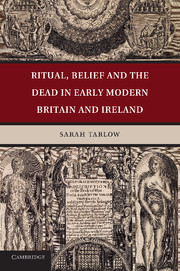Chapter 3 - Scientific Belief
Published online by Cambridge University Press: 05 July 2014
Summary
Alongside theological discourses on the body as a paradigm of the divine order or, paradoxically, the soulless body as worthless carrion, a revolution in scientific thinking was changing the ways people thought about the human body and the ways available to them for knowing about it. The old science of the human body based on authoritative writings of ancient or medieval authorities was giving way to a new anatomy, based on empirical observation, practical knowledge of the body's interior and scientific experiment. At the core of the new science of the human body was the study of anatomy. This chapter explores the history and cultural significance of cutting the dead body, reviews the archaeological evidence for anatomy, embalming and autopsy and considers why dissecting the dead was such a meaningful act in post-medieval Britain.
The history of anatomy in Europe can be told as part of the history of medicine. Such a narrative would contrast the pre-modern understandings of the human body – humoral, microcosmic and based on knowledge passed in a direct line of transmission from the classical philosophers – with the modern: rational and systemic, gained through personal study and scientific enquiry. The separation of modern scientific anatomy from received knowledge of the ancients happened as natural philosophy and its study pulled away from moral philosophy and theology during the later seventeenth century and took full cultural effect in the eighteenth century. Anatomy was a fashionable study, and some acquaintance with human anatomy permeated deeply into society. By the 1650s, an average of eighteen medical texts, most of which were largely based on anatomy, were published in England every year (Webster 1975: 266–7). But the history of medicine tells only part of the story; the fascination of anatomy was at least partly outside rationalist or utilitarian frames of reference.
- Type
- Chapter
- Information
- Publisher: Cambridge University PressPrint publication year: 2010
- 1
- Cited by

